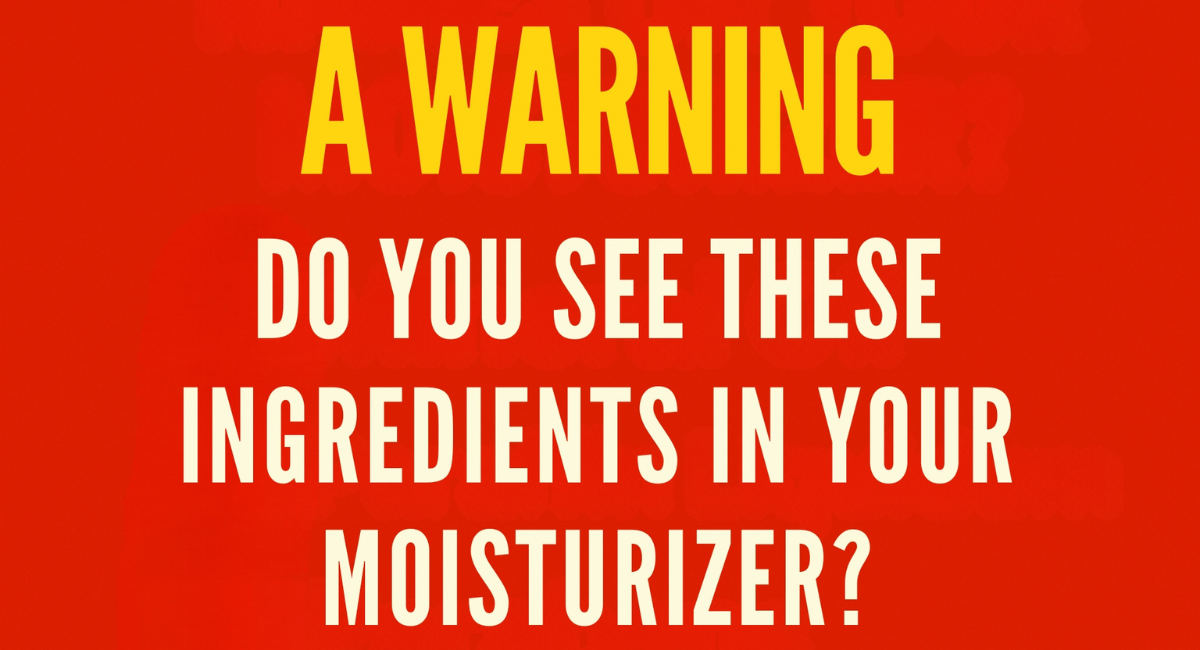The Hidden Truth Behind Common Moisturizer Ingredients: What They Really Do to Your Skin
1️⃣ Mineral Oil
Origin:
Mineral oil is a by-product of petroleum (crude oil) distillation — the same substance used to produce fuels like diesel and kerosene.
Why It’s Harmful:
❌ Creates an occlusive layer that blocks pores
❌ Prevents skin from breathing
❌ Traps bacteria + sweat → leading to acne, blackheads
❌ Gives “fake smoothness” without nourishing the skin
❌ Long-term use weakens the natural skin barrier
Mineral oil has zero nutrients — it only coats the skin like plastic wrap.
2️⃣ Paraffin Liquid Oil (Paraffinium Liquidum / LLP)
Origin:
Derived from petroleum refining, paraffin oils are used in industrial lubricants, candles, and polishes.
Why It’s Harmful:
❌ Forms a heavy, sticky film on the skin
❌ Clogs pores and worsens breakouts
❌ Interferes with natural oil balance
❌ Can cause dryness rebound — skin feels even drier over time
❌ May trigger irritation in sensitive skin
Paraffin is widely used because it’s cheap, not because it’s good for your skin.
3️⃣ Paraffin Wax
Origin:
Also obtained during the petroleum purification process. Commonly used in machine lubrication and polishing industries.
Why It’s Harmful:
❌ Blocks pores and prevents natural detoxification
❌ Causes heat-locking → inflammation and bumps
❌ Can trap dead skin, sweat, sebum, and bacteria
❌ Leaves the skin looking oily but feeling dry
Paraffin wax gives a glossy look but provides no real nourishment.
4️⃣ Parabens
Origin:
Parabens are synthetic preservatives made from para-hydroxybenzoic acid — a chemical lab derivative used to extend product shelf life.
Common names:
– Methylparaben
– Propylparaben
– Butylparaben
– Ethylparaben
Why They’re Harmful:
❌ Linked to hormone disruption (endocrine disruption)
❌ Mimic estrogen inside the body
❌ Associated with breast cancer findings
❌ Can cause skin sensitivity + dermatitis
❌ Banned in many countries for babies & pregnant women
Parabens stay in the body and accumulate over time — a major long-term concern.
5️⃣ Dimethicones (Silicones)
Origin:
Dimethicone is a synthetic silicone polymer, produced from silicon + methyl chloride.
Commonly used in lubricant industries and furniture polishes.
Why They’re Harmful:
❌ Creates a plastic-like layer on skin
❌ Makes skin feel smooth but blocks natural oils from functioning
❌ Causes “silicone buildup” → dull, suffocated skin
❌ Worsens breakouts and blackheads
❌ Prevents nutrients from penetrating the skin
Silicones give instant slip, but no healing or nourishment.
✅ Why Do Brands Use These Chemicals?
✅ They are very cheap
✅ Give quick cosmetic effects (smoothness, shine)
✅ Extend product shelf life
✅ Mask poor-quality formulations
But long-term use results in:
❌ Dryness
❌ Flakiness
❌ Dullness
❌ Sensitivity
❌ Premature aging
This creates a cycle where consumers keep buying more products to “fix” the damage caused by chemical-based moisturizers.
✅ So, What’s the Healthier Alternative?
Nature provides powerful ingredients that:
✅ Nourish deeply
✅ Repair the skin barrier
✅ Lock in moisture naturally
✅ Improve texture, glow, and softness
Ingredients like:
🌸 Palash Flower Extract
🌿 Shea Butter
🌰 Almond & Jojoba Oil
🍃 Rosehip
These are rich in vitamins, antioxidants, and fatty acids — giving long-lasting moisture without chemicals.
✅ Final Thoughts
Understanding your moisturizer's ingredient list is the first step toward healthy, nourished, naturally glowing skin.
Your skin deserves more than cheap petroleum oils and synthetic fillers.
Choose products rich in real botanicals — not chemicals that temporarily mask dryness.



0 Comments